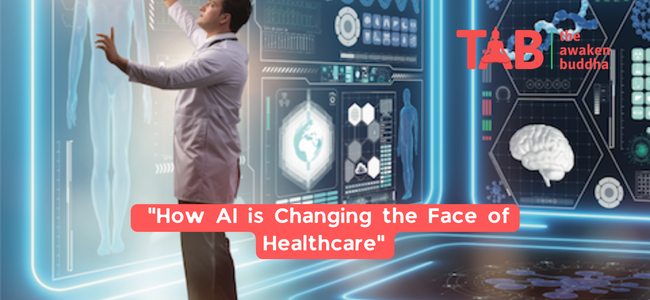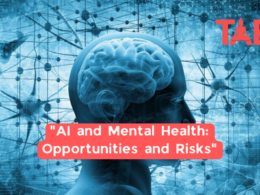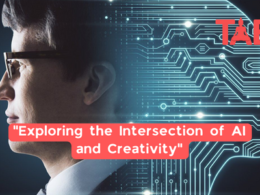The healthcare industry has undergone a remarkable transformation thanks to the influence of technological advancements. Artificial Intelligence (AI), in particular, has materialize as a game-changer, revolutionizing healthcare. This article delves into the deep impact of AI on healthcare, exploring its effects on patients, healthcare providers, and the entire industry.
Introduction to AI in Healthcare
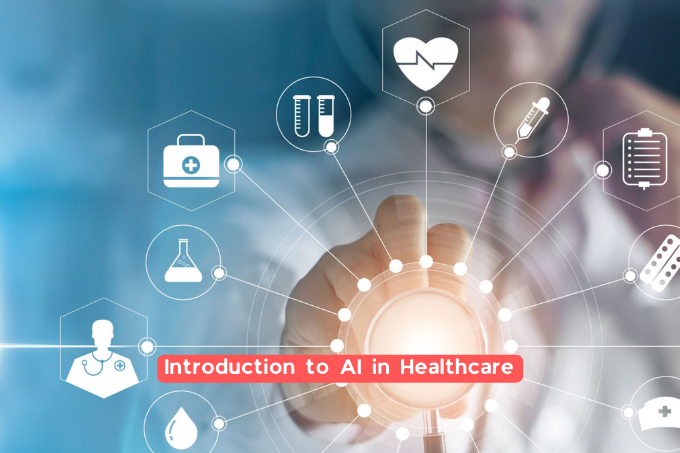
Artificial Intelligence (AI) is a technology harnessing algorithms and computer programs to mimic human intelligence. Within healthcare, AI plays a pivotal role in analyzing intricate medical data, extracting valuable insights, and aiding healthcare professionals in making informed clinical decisions. Its applications encompass predictive analytics, the analysis of medical images, natural language processing, and the development of virtual health assistants, among others.
AI and Diagnostics
AI is profoundly reshaping healthcare, particularly in the realm of diagnostics. AI algorithms excel at sifting through extensive medical data and discerning patterns that might challenge human experts. This knack for pattern recognition and analysis can potentially detect early disease and enhance patient outcomes. AI-driven diagnostic solutions have emerged across various medical domains, spanning radiology, cardiology, and oncology, to name a few.
AI and Patient Care
AI has played a pivotal role in elevating the quality of patient care. Virtual health assistants and chatbots, driven by AI, have been created to deliver tailored patient support, encompassing tasks like medication reminders, symptom tracking, and disease management. Furthermore, these virtual assistants extend their capabilities to address mental health issues, including but not limited to depression and anxiety.
AI and Healthcare Operations
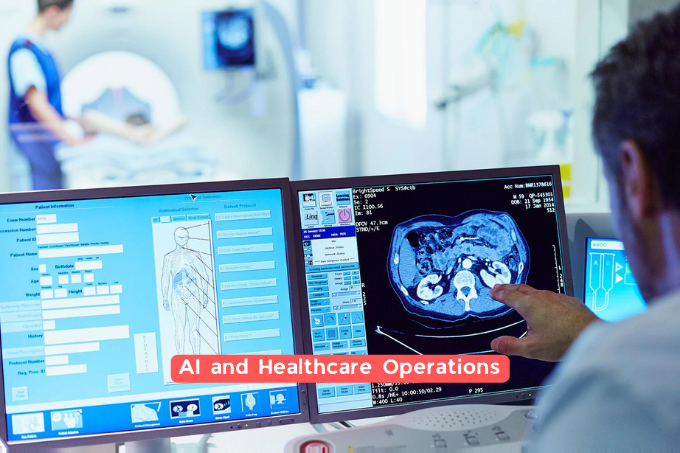
Beyond its impact on diagnostics and patient care, AI is revolutionizing the landscape of healthcare operations. AI-driven technologies empower healthcare providers to streamline their operations and enhance overall efficiency. Examples of AI applications in healthcare operations encompass supply chain management, appointment scheduling, and patient flow management.
AI and Drug Discovery
AI has found its application in the realm of drug discovery and development as well. The conventional process of discovering new drugs is characterized by its time-consuming and costly nature, often relying on trial-and-error methods. AI algorithms, however, excel at scrutinizing extensive medical data to pinpoint potential drug candidates. This innovative approach promises to substantially curtail both the time and expenses associated with drug development while bolstering the likelihood of success.
AI and Ethics
Like any nascent technology, integrating AI into healthcare raises ethical considerations. These include safeguarding patient privacy, ensuring data security, and mitigating algorithmic bias. Establishing ethical frameworks and guidelines to guarantee the responsible and conscientious use of AI within the healthcare sector is imperative.
Future of AI in Healthcare
The future of AI in healthcare is exceedingly promising. As technology continues to advance and medical data becomes more accessible, AI stands ready to usher in a profound revolution within the healthcare sector. Its potential extends to reshaping personalized medicine, disease prevention, and public health.
Conclusion
AI is already reshaping the healthcare landscape with its tangible effects. Through AI-powered tools and applications, it is revolutionizing diagnostics, patient care, healthcare operations, and drug discovery and development. Nevertheless, it is paramount to confront the ethical dilemmas associated with AI in healthcare, emphasizing its responsible use. The future of AI in healthcare is exceptionally promising, holding the potential to significantly enhance patient outcomes and bring about a profound transformation in the healthcare sector.
FAQs
1. What is AI in healthcare, and how is it used?
AI in healthcare involves using algorithms and computer programs to simulate human intelligence. It analyzes complex medical data, generates insights, and supports clinical decision-making. AI applications in healthcare include predictive analytics, medical imaging analysis, natural language processing, and virtual health assistants, among others.
2. How is AI transforming diagnostics in healthcare?
AI algorithms can explore vast amounts of medical data and identify patterns that may be difficult for human experts to recognize. This ability to identify patterns and analyze complex data sets can help early detection of diseases and improve patient outcomes. How is AI improving patient care? AI-powered virtual health assistants and chatbots have been developed to provide patients with personalized care, including medication reminders, symptom monitoring, and disease management. These virtual assistants can also support mental health conditions, including depression and anxiety.
3. What are some ethical concerns surrounding AI in healthcare?
Ethical concerns include patient privacy, data security, and algorithmic bias. It is essential to develop ethical groundwork and guidelines to ensure that AI is used responsibly in healthcare.
4. What is the future of AI in healthcare?
With continued advance in technology and the increasing availability of medical data, AI is poised to revolutionize the healthcare industry further. AI can potentially transform personalized medicine, disease prevention, and public health.





